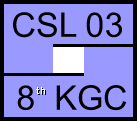
Nicolai Vorobjov: Effective quantifier elimination over real closed fields
| Welcome and News |
| Host Institutions |
| Calls and Deadlines |
| Program |
| Social Program |
| Registration |
| Location and Venue |
| Accommodation |
| Committees |
| Contact |
| Colocated Events |
| Authors' instructions |
 Print this page Print this page
|
In mid-70s a group of algorithms appeared based on the idea of a cylindrical cell decomposition and having an elementary albeit doubly-exponential complexity, even for deciding closed existential formulae. The tutorial will explain some ideas behind a new generation of algorithms which were designed during 80s and 90s and have, in a certain sense, optimal (singly-exponential) complexity.
In a useful particular case of closed existential formulae (i.e., deciding feasibility of systems of polynomial equations and inequalities) these new algorithms are theoretically superior to procedures known before in numerical analysis and computer algebra.
| © 2002-2003 Kurt Gödel Society, Norbert Preining. |
2003-07-09

|